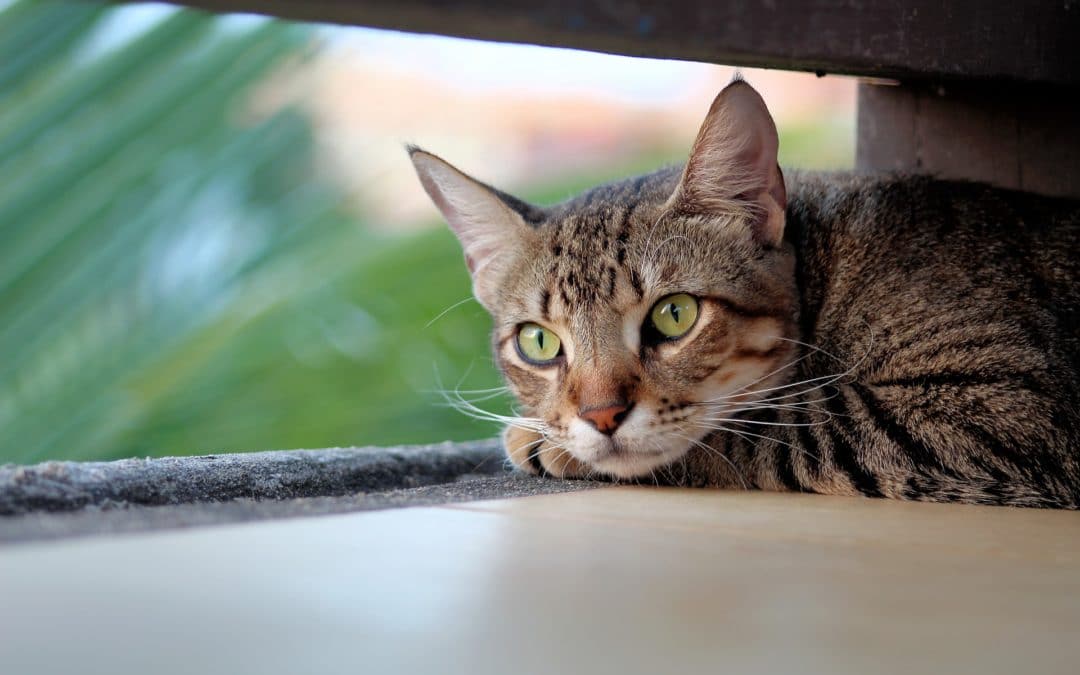In the cat world, one of the core vaccinations is known as FVRCP. This acronym used by veterinarians protects your cat from three deadly airborne viruses: feline viral rhinotracheitis, calicivirus and panleukopenia.”
Feline Rhinotracheitis and Calicivirus Viruses
The core FVRCP vaccine prevents rhinotracheitis and calicivirus – which are upper respiratory viruses of cats. Rhinotracheitis is a herpes virus that causes fever, sneezing, a runny nose and eyes. Most cats recover, but kittens can be severely affected and develop oral and corneal ulcers. Chronic infection can also occur since it is a herpes virus. Talk to your vet about the use of lysine, which may lessen the attacks.
Calicivirus causes similar clinical signs and preferentially infects the oral cavity, causing sneezing, runny nose and oral ulcers. Some strains of the virus may cause pneumonia. Unless a secondary bacterial infection develops, there is no specific treatment for calicivirus. Your cat can get either rhinotracheitis or calicivirus from the sneezes of a sick cat or if you come in contact with a sick cat and then pet your cat, you may inadvertently spread the virus.
Feline Panleukopenia Virus (or Feline Distemper)
Interestingly, panleukopenia is sometimes referred to as feline distemper, which is in no way related to the canine distemper virus. As if you’re not confused enough – feline distemper (or panleukopenia) is actually related to the canine parvovirus, which can be a deadly disease. Recent reports indicate there is an outbreak of this serious disease just north of New York City.
Since the viruses responsible for causing feline distemper and canine parvovirus enteritis are closely related, the clinical signs are similar. Feline distemper virus infection is usually found in kittens or young cats — especially stray kittens or even shelter kittens because they haven’t had a chance to be vaccinated. These kittens or young cats ingest the virus, which attacks the rapidly dividing cells in their bone marrow and intestinal tract, resulting in severe vomiting and diarrhea.
When the veterinarian examines the sick pet, she discovers dehydration, protein loss from diarrhea and a dangerously low white blood cell count because of the virus’s effect on the bone marrow cells. Pneumonia can also develop and complicate the infection. Kittens with feline panleukopenia virus infection are critically ill and unfortunately, many cannot be saved. No specific treatment for the feline distemper virus exists although therapy is directed at preventing dehydration, controlling vomiting and diarrhea and treating infections that occur when the white blood cell count gets dangerously low.
Vaccinate your Cat in Gilbert!
Even though these viral infections are serious, they are preventable through vaccination. Two types of vaccines are available – the traditional “shot” and an intranasal drop, similar to the intranasal flu vaccination available for humans. Your veterinarian will know what is right for your cat. During your cat’s annual physical examination, be sure to discuss what vaccinations are appropriate for your cat based on its lifestyle and risk factors.
Image by Charles Leslie from Pixabay (7/1/2019)

